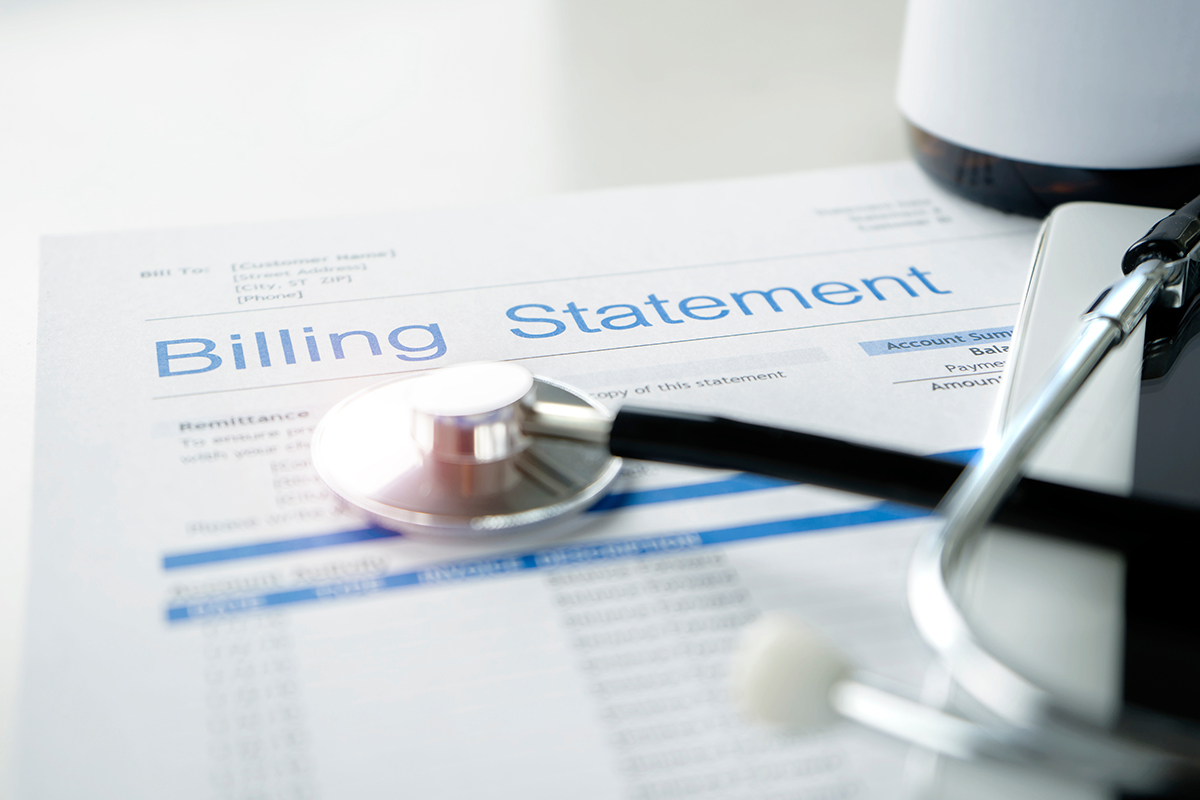Do you have outstanding medical expenses?
Here are some tips for finding relief with medical debt.
Bronson Healthcare in Southwest and Central Michigan had over $70 million in 2023 in uncollected medical debt. [1]
Check Your Medical Bill for Errors
Medical billing errors are not uncommon, and they can occur for various reasons. A simple data entry mistake could result in incorrect charges, or a miscommunication between healthcare providers and insurance companies might lead to billing discrepancies.
Carefully analyze each line item, comparing it with the services you received during your medical treatment. Keep an eye out for any duplicate charges, inflated costs, or procedures that you did not undergo. It is not uncommon for healthcare facilities to inadvertently add charges for services you did not receive, scrutinize every detail.
If you come across any discrepancies while reviewing your medical bill, don’t panic. Begin by contacting your healthcare provider’s billing department or your insurance company’s customer service. Inform them about the errors you have identified and request an explanation or correction.
Your healthcare provider or insurance company might require additional documentation to support your claim. This could include receipts, medical records, or any other relevant paperwork that confirms the inaccuracies in your bill.

Negotiate Medical Debt
Effective ways to negotiate medical debt and regain control over your financial situation include:
-
Gather all Relevant Information:
Start by collecting and organizing all the necessary documents related to your medical debt. This includes medical bills, insurance statements, and any communication you have had with healthcare providers or debt collectors. -
Understand your Rights and Options:
Familiarize yourself with your rights as a consumer when it comes to medical debt. The Fair Debt Collection Practices Act (FDCPA) protects consumers from unfair debt collection practices and provides guidelines for negotiation. Research your options for relief, such as state-specific programs or nonprofit organizations that assist with medical debt. [2] -
Communicate with Healthcare Providers:
Initiate a conversation with your healthcare provider or hospital billing department. Explain your financial situation, highlighting any hardships that may have contributed to your inability to pay the full amount. Discuss potential options, such as financial assistance programs, discounted repayment plans, or reduction in fees. -
Negotiate with Debt Collectors:
If your medical debt has been assigned to a debt collector, engage in negotiation discussions with them. You have the right to request validation of the debt, including itemized bills. Use this information as leverage during negotiations. Offer a lump sum settlement amount based on your financial capacity, as debt collectors may be more inclined to accept a reduced payment rather than receiving nothing at all. -
Seek Professional Assistance:
If negotiating on your own becomes overwhelming or proves ineffective, seek help from a reputable credit counseling agency or debt relief organization. These professionals have experience handling medical debt negotiations and can provide guidance tailored to your specific situation.
Ask for a Payment Plan
Many medical providers and creditors offer flexible payment arrangements, tailored to individual financial capabilities. These plans may include reduced monthly payments, extended repayment periods, or even discounted settlement amounts.
When discussing payment plans, try to negotiate terms that will suit your financial situation best. If the initial offer does not seem feasible for you, don’t hesitate to request adjustments such as lower monthly payments or an extended timeframe for repayment.
If you encounter difficulties during this process or face resistance from your medical providers or creditors in offering a payment plan, consider seeking professional advice. There are nonprofit organizations and credit counseling agencies dedicated to assisting individuals with medical debt and negotiating on their behalf.

Consolidate Medical Debt
One of the most common methods for consolidating medical debt is through personal loans or credit cards. Sterling Heights residents can approach local banks, credit unions, or online lenders to apply for a personal loan that will cover all their medical bills.
This option allows individuals to combine their debts into one single monthly payment, often at a lower interest rate than what is typically charged for medical bills. Individuals can also transfer their medical debts to a low-interest credit card, ensuring more manageable monthly payments.
Check for Government Assistance Programs
Government assistance programs are designed to help individuals and families with financial difficulties resulting from medical expenses. Here’s how you can check for these programs and potentially alleviate the burden of medical debt.
-
Start with Research:
Begin by conducting thorough research on government assistance programs available in Sterling Heights. Look for programs specifically tailored for medical debt relief, considering both federal and state-level programs. Make use of online resources, government websites, and local community organizations to obtain accurate and up-to-date information. -
Contact Government Agencies:
Reach out to relevant government agencies, such as the U.S. Department of Health and Human Services, the Social Security Administration, or the Michigan Department of Health and Human Services. These agencies can provide you with information about applicable assistance programs and guide you through the application process. Take note of all necessary documentation and eligibility requirements. -
Explore Medicaid:
Medicaid is a joint federal and state program that aims to provide health coverage to low-income individuals and families. It is often the go-to option for medical debt relief. Check if you qualify for Medicaid based on your income level and other eligibility criteria set by the state of Michigan. -
Investigate Medicare Savings Programs:
If you are a senior citizen aged 65 or above, or if you have a disability, you might be eligible for Medicare Savings Programs (MSPs). These programs help cover Medicare premiums, deductibles, and other out-of-pocket costs. Each MSP has specific eligibility requirements, so it is crucial to carefully review the details and determine if you qualify. -
Seek Assistance from Local Organizations:
Numerous local community organizations in Sterling Heights may offer financial help or helpful resources to individuals struggling with medical debt. Non-profit organizations and charities often provide assistance in navigating government programs and can connect you with additional resources specific to Sterling Heights. -
Utilize Online Resources:
Numerous websites and online platforms exist to assist individuals in finding state-level programs and resources for medical debt relief. Make use of these resources to find additional programs that might not be readily apparent.

Consider Bankruptcy if You’re Out of Options
If you have exhausted all other options and bankruptcy seems like the only viable solution, here are a few points to consider:
There are different types of bankruptcy, including Chapter 7 and Chapter 13. Each has its own requirements and implications. Educate yourself on the specific regulations and consult with an experienced bankruptcy attorney to determine which option is most suitable for your situation.
Bankruptcy will have an impact on your credit score and can stay on your credit report for several years. This can make it difficult to secure loans or credit in the future.
Depending on the type of bankruptcy, you may be required to liquidate certain assets to repay a portion of your debts. Understand what assets are protected under bankruptcy laws and what you may potentially lose.
If you live in Sterling Heights, contact Frego & Associates to start the process of getting the medical debt relief you need.
FAQs
Ensure that you have health insurance coverage that fits your needs and budget. Regularly review your policy to understand what is covered and what costs you may be responsible for. Maintaining a healthy lifestyle can also help reduce the likelihood of needing costly medical treatments or procedures. Seeking preventative care, such as routine check-ups and screenings, can catch potential health issues early on, minimizing the need for expensive interventions.
Yes, medical debt is generally considered a type of unsecured debt. Unsecured debt refers to debts that are not backed by collateral, such as a house or a car. Since there is usually no physical asset tied to the debt, healthcare providers cannot repossess any property in case of non-payment. Even though medical debt is unsecured, it can still have significant consequences on credit scores, collection efforts, and potential legal actions by creditors.
If you receive a medical bill that you believe contains errors, such as incorrect charges or billing for services not rendered, it is important to address the issue promptly. Start by contacting the healthcare provider’s billing department to discuss your concerns. Provide any supporting documentation or evidence that clarifies your position. Many healthcare providers have a formal process in place for bill disputes and may be willing to review and adjust the charges if errors are identified.
Sources:
[1] Michigan health care system aims to ease burden of medical debt. (2024, April 8). The Detroit News. https://www.detroitnews.com/story/news/local/michigan/2024/04/07/michigan-health-care-system-aims-to-ease-burden-of-medical-debt/73210707007/
[2] Fair Debt Collection Practices Act. (2016, March 23). Federal Trade Commission. https://www.ftc.gov/legal-library/browse/rules/fair-debt-collection-practices-act-text




